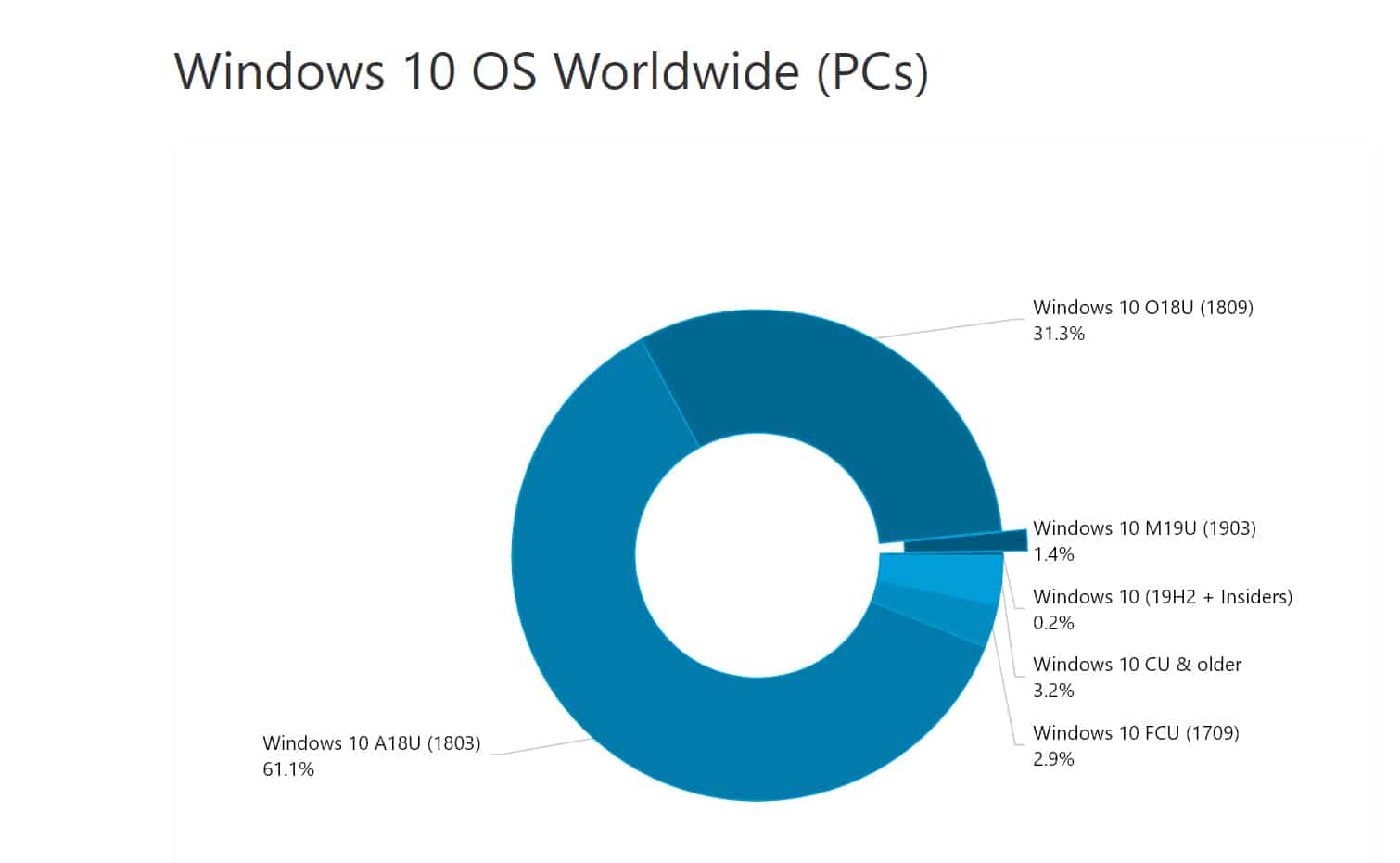Most Windows 10 users are running the update from over a year ago

Microsoft’s original grand plan for Windows 10 was an operating system that was always up-to-date. Updates were intended to be mandatory, and while you could delay them a bit, you couldn’t opt out of them entirely. And the software giant was committed to rolling out two major feature updates a year.
Fast forward to now, and things are very different. You can delay, or avoid, most updates, including feature updates -- assuming you’re even offered them in the first place.
SEE ALSO
- Microsoft drops some very big hints about its modern 'Windows Lite' OS
- Here are all the features Microsoft removed or deprecated in Windows 10 May 2019 Update
- Force Windows 10 to install the May 2019 Update NOW
- New version of Windows 95 runs faster on Windows 10, macOS and Linux
AdDuplex monitors the state of adoption for the various Windows 10 versions, and its latest figures, for May, show the October 2018 Update (1809) is still only on 31.3 percent of systems (up from 29.3 percent in April), and the May 2019 Update (1903) is currently to be found on just 1.4 percent of devices.
In the case of the latter update, its tiny share can be attributed to it only having been released to the general public a week ago, and Microsoft blocking incompatible systems from installing it.
It will be interesting to see what that figure rises to next time around after a full month of availability.
In the meantime, the vast majority of Windows 10 users -- a whopping 61.1 percent -- are still running the April 2018 Update from a year ago, suggesting people unsurprisingly prefer stability over the latest bells and whistles. Windows 7’s enduring popularity is testament to that…

Image Credit: racorn/Shutterstock
